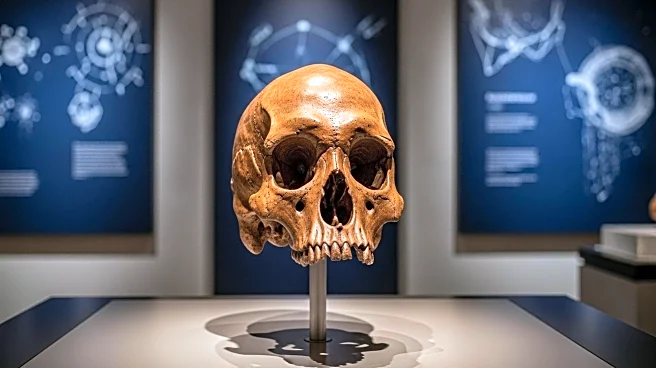What's Happening?
A team of researchers from China and the UK has reconstructed a million-year-old skull using advanced 3D scanning and digital techniques, revealing new insights into human evolution. The skull, known as Yunxian Man, was discovered in the late 1980s in China and has been identified as belonging to a closely related human species. The analysis suggests that the divergence between Homo sapiens and its relatives occurred much earlier than previously thought, pushing back the timeline for human evolution by several hundred thousand years. The study, published in Science, indicates that Homo sapiens can now be traced back to over a million years ago.
Why It's Important?
This discovery has profound implications for our understanding of human evolution, suggesting a more complex and earlier divergence of hominid species. It challenges existing theories about the timeline of human ancestry and could reshape the narrative of how modern humans evolved. The findings may also help resolve longstanding mysteries in the fossil record, particularly the 'muddle in the middle,' a period marked by puzzling hominid fossils. By extending the timeline of Homo sapiens' origin, the research offers new perspectives on the evolutionary processes that shaped our species.
What's Next?
The study's conclusions will likely prompt further scrutiny and validation efforts from the scientific community. Researchers may focus on examining other ancient hominid fossils using similar digital reconstruction techniques to confirm the revised timeline. This could lead to a reevaluation of the evolutionary relationships between different hominid species and provide a clearer picture of human ancestry. Additionally, the findings may inspire new archaeological expeditions to uncover more evidence of early human evolution.
Beyond the Headlines
The use of modern technology to reconstruct ancient fossils highlights the intersection of archaeology and digital innovation. It demonstrates how advancements in scientific tools can transform our understanding of history and evolution. The research also underscores the importance of preserving and studying ancient artifacts, as they hold the key to unraveling the complexities of human origins.










